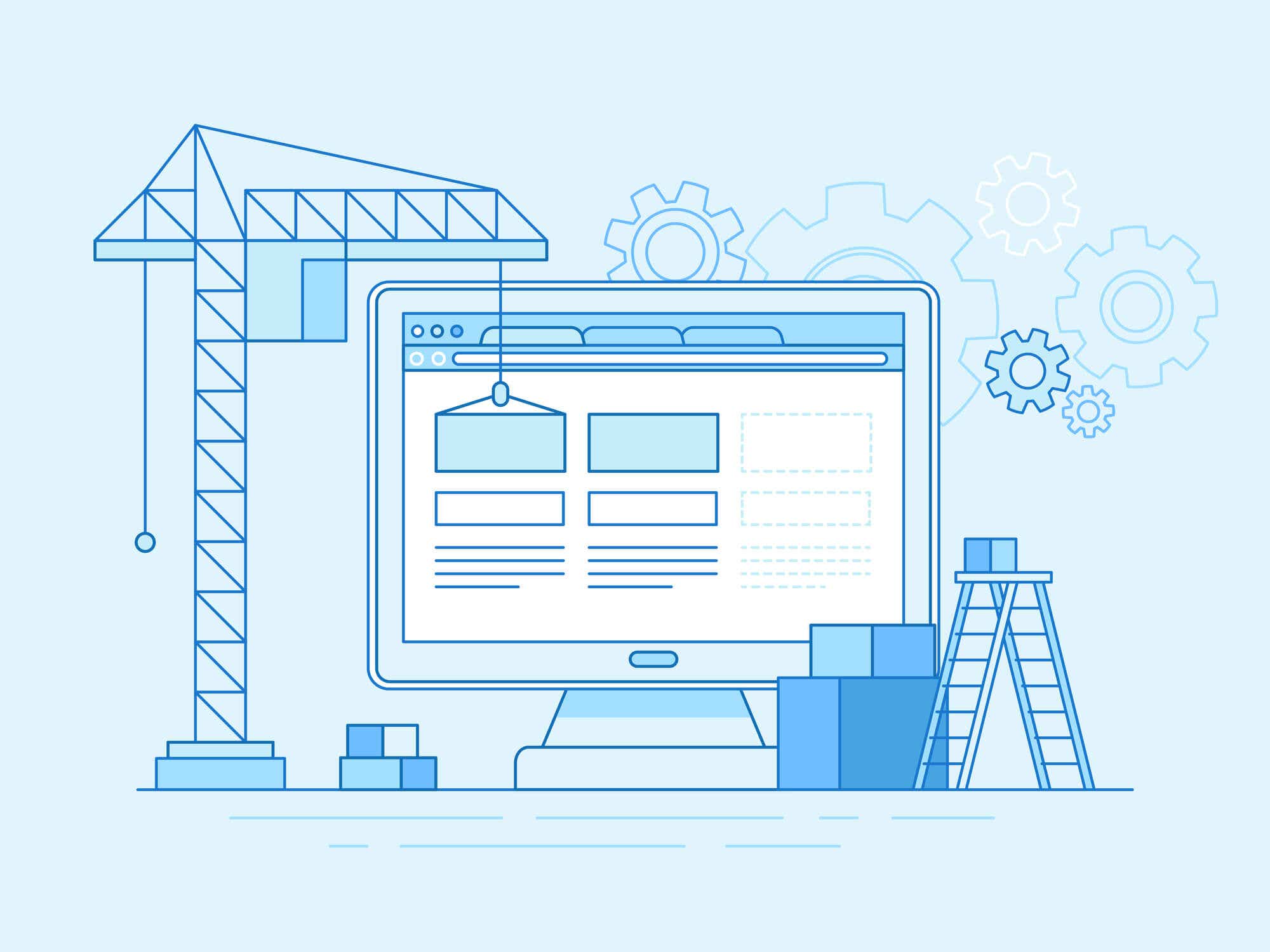Converse com a Ava - Sua Consultora AI de Negócios
Olá, eu sou a Ava, seu guia de IA para turbinar seus negócios!
Se você já está a frente de um negócio ou sonha em começar um, estou aqui para te ajudar a transformar suas ideias em realidade usando freelancers com a ajuda de tecnologia de IA. Compartilhe seus objetivos de negócio e, juntos, criaremos um projeto pelo qual nossos talentosos freelancers possam concorrer. Vamos transformar suas ideias em realidade!
Eu tenho um negócio
Estou começando um negócio
Algo deu errado ao enviar a conversa para o seu e-mail. Por favor, tente novamente mais tarde.
Você só pode salvar sua conversa uma vez por hora. Por favor, tente novamente mais tarde.
Sua conversa é muito curta. Continue conversando com a Ava para permitir o salvamento.
PHP - Hypertext Preprocessor
PHP is used to build websites and functionality for websites, and is used by popular platforms, including WordPress, Joomla, Magento and Drupal.
21 de abr. de 2022 • 11 minuto lido
Atualizado em 6 de mar. de 2023 por Happymarli

Proofreader, Editor, Writer and App Developer
Não foi possível copiar para a área de transferência, por favor, tente novamente após ajustar suas permissões.
Copiado para a área de transferência.

Fact | Description |
|---|---|
Fact | Description |
Fact | Description |
Fact | Description |
Fact | Description |
Fact | Description |
Fact | Description |
Learn all about PHP
PHP makes things happen on the internet. If you are a business, website owner, or entrepreneur, PHP can help you market your brand, connect with customers, improve productivity, increase sales, and much, much more. We’ll explain everything you need to know about PHP on this page, including how to find a developer that will help you benefit from this powerful tool. We’ve also got information if you are a PHP developer and are looking for freelance opportunities, as well as helpful tips and advice if you are thinking of becoming a PHP developer to advance your career.
What is PHP?
In simple terms, PHP is a scripting language that is used in web and web app development. It is used to build websites and functionality for websites, and it is used by many of the web’s most popular platforms, including WordPress, Joomla, Magento, and Drupal. Diving in a bit deeper, PHP is a server-side scripting language. This means scripts (sections of code) written in PHP are processed on a web server before being sent to the user. Usually, the user is a website visitor or web app user. The server-side nature of PHP is important, as this is what makes it different from client-side scripting languages that are processed on the user’s device. The fact that PHP processes scripts on the server-side makes it possible to create fast-loading, dynamic websites that produce customized experiences for users. PHP is an open-source coding or scripting language, so it can be used by anyone. It is also supported by all major operating systems, web browsers, web servers, and cloud computing platforms. As for the name, it is a recursive acronym that stands for PHP Hypertext Preprocessor. A recursive acronym is an acronym where the first letter is part of the acronym. These types of acronyms exist mostly in the worlds of technology and the internet.
What is PHP Used For?
PHP is a highly flexible scripting and programming language that is compatible with a range of other development tools, so it can be used to create just about anything that runs on a web server. As a result, PHP is used to create a wide range of websites, from complex social media sites to e-commerce websites and everything in between. It is also an excellent tool for creating specific functionality that can then be added to a website. A good way to get an idea of the scope of what is possible with PHP is to look at what it is currently being used for. For a start, most of the websites on the net use PHP in some form, including websites owned and/or managed by people who have never heard of PHP before. This is because PHP is often used to develop the platforms, themes, plugins, and apps that developers use to build websites.
In addition, some of the internet’s most famous brands use PHP. Facebook, for example, was originally built in PHP. It still uses PHP, in fact, although it has developed its own modified version. Wikipedia is another that can be included on the list of PHP big-hitters. It is powered by MediaWiki, and MediaWiki is written in PHP.
Content Management Systems (CMS) like WordPress are built in PHP, too, as are many web hosting platforms. In other words, it would not be surprising if the following applied to your website: Website hosting – website hosting providers commonly use PHP to deliver their hosting services, so your website host probably includes PHP. WordPress – WordPress is the most commonly used CMS on the internet. If your website is built in WordPress, it uses PHP. Theme – the visual appearance of your website and some of its functions will be delivered by your website’s theme. Website themes are commonly built in PHP. Plugins – much of the functionality of your website will be delivered via a plugin. Again, it is common for plugins to be built using PHP. Custom functionality – if your website has custom functionality, that functionality could have been developed using PHP.

Why Use PHP?
PHP is the right choice in a number of development situations. This includes:
In terms of more specific use cases, PHP is often used to run back-end functions on websites and web apps, as well as to retrieve data or perform front-end tasks requested by users or website visitors. With PHP, the potential is almost endless, i.e., if you want to develop something that your customers, staff, community, or partners will access via a web browser, you should be able to do it in PHP.
What's the Difference Between PHP and HTML?
PHP and HTML are different types of languages, so we’ll start with the techie answer: as outlined above, PHP is a scripting language, whereas HTML is a markup language. What does this mean, though? It is actually easier to understand than it might first appear. This is because most websites and website applications require both PHP and HTML. HTML is used to create the structure of the website. For example, where the headings go, where the text goes, and where the images go. PHP scripts add the content. Then, to add another element, CSS provides the styling. Therefore, even in the most basic of websites, all three (PHP, HTML, and CSS) are required as they perform very different, but necessary, functions.
The Benefits of PHP
Platform Independent
PHP runs on all platforms, including Linux, Windows, and Apple operating systems. This makes it highly versatile and flexible, as you don’t need to worry about compatibility issues.
Open Source and Free
As it is open-source, PHP can be used by anyone at no cost. This sets it apart from some of the alternatives that are available.
Syncs with All Databases
You can use PHP to sync with most commonly used databases, including MySQL and Oracle, among others. This makes PHP ideal for any type of website or web application, including complex, database-heavy applications.
Powerful Scripting Language
You can use PHP to create just about any web-based tool, feature, or website. Even though it is open-source and free, it is one of the most powerful tools of its kind available. In fact, the open-source nature of PHP is arguably a strength in this regard, as many people and organizations have contributed to its development.
Supported by Web Hosting Services
As PHP is a server-side scripting language, it needs to run on the web servers operated by web hosting companies. Almost all web hosting services offer PHP support. This isn't the case with the alternatives, making many of the alternatives more restrictive than PHP.
Website Users Don’t Need to Install Anything
As PHP is a server-side scripting language, there is no need for visitors to your website to have PHP installed on their devices. All they need is a commonly used web browser (e.g., Chrome, Safari, Firefox, etc.) to view your site or app.
Up to Date
The developers behind PHP keep it up to date, releasing updates and new versions as the internet, new technologies, and user expectations evolve.
Strong Support Community
PHP has been around since 1994, so it is well established and has a large and knowledgeable support community. This helps with everything from finding solutions to getting rid of bugs to following best practice standards.
Is PHP Still Relevant?
As with anything on the internet that has been around since back in the mid-90s, questions of relevancy are not hard to find. The question of relevancy also often comes up as there are now several alternatives to PHP, including much newer alternatives. Popular examples include NodeJS and Python. The fact is, PHP is still hugely popular, and it appears in some shape or form on the majority of websites on the internet today. Even if you don't have any custom PHP tools or functionality on your site or web application, you will still be using PHP if you are using a CMS like WordPress. Also, PHP is as powerful, flexible, and useful today as it ever has been. Therefore, there is practically zero risk that PHP will be abandoned or that the development community will switch to something else – at least, not in the short or medium term.
The Benefits of Hiring a PHP Developer
If you have decided to use PHP, the next step is to develop your PHP script. There are two main options available: hire a PHP developer or create the PHP code yourself. In general, PHP is a programming language that anyone can learn. In fact, PHP programming is easier to learn than many other languages. That said, the process takes time, particularly to get beyond the basics. Getting beyond the basics is essential if you want to efficiently create effective PHP applications and tools. For most people unfamiliar with PHP, or who have only a basic understanding, the best option is to hire PHP developers for your projects. A professional PHP developer will complete your project faster and to a higher standard as PHP development is their area of specialty. Also, for more advanced projects, knowledge of PHP on its own is not enough. The project might also require knowledge of HTML, database management systems, JavaScript, and XML. In other words, what you are really looking for is a rounded software developer. Professional PHP developers will have these additional skills, ensuring your project is completed to the highest standard and with minimal delays. Now that you’ve decided to hire a PHP developer, the next question is who. There are software development companies that offer PHP development services, or you can hire a professional freelance PHP developer. A freelance PHP developer will bring years of experience to your project, and your costs are likely to be lower. Freelance PHP developers are also responsive, plus you’ll know exactly who you are dealing with, unlike a company where you can be passed from employee to employee.
How to Hire a PHP Developer
One of the biggest challenges you are likely to face when hiring freelance PHP developers is finding suitable candidates, i.e., dedicated PHP developers with the skills, qualifications, and experience you need. This is where Freelancer can help, as we have hundreds of freelance PHP developers on our platform. Another challenge you might face when hiring a PHP developer is finding the information you need before making a decision. How can you tell if the developer is capable of completing your project, particularly when communication is remote rather than in-person? Freelancer has a certification process for PHP developers to help give you the confidence you need in the qualifications and abilities of anyone you hire. Clients can also rate PHP developers hired through Freelancer which you can then review to get an understanding of past performance. These tools, in addition to the fact that Freelancer gives you access to a wide pool of PHP developers from all over the world, make the process of hiring a PHP developer straightforward.
Process for Hiring a PHP Developer on Freelancer
Hiring a PHP developer, whether for a short-term or long-term project, couldn’t be easier when you use Freelancer. Here’s how it works: Post a job – the process starts with you posting a job to the Freelancer platform. It is helpful if you include as much information about the project as you can, including what you want to achieve, the PHP frameworks that you think will be required, your timescales, and anything else that is relevant. Receive bids – your job will appear in the feeds of the PHP developers who use the Freelancer platform. They can then submit a bid for your job if they are interested. Review bids – you will receive notifications when you receive bids so you can review them as they come in. It is usually best to first shortlist the bids you like the most. You can then engage further with those on your shortlist to get any further information you need to help you make a decision. Choose a freelance PHP developer (or more than one) – the next step is to settle on the freelancer or freelancers you want to hire. This process is completed on the Freelancer platform to protect everyone involved and to ensure transparency. Start the job – once the freelancer is hired, the job can then start. It is helpful if the freelancer you hire creates a development environment that is separate from your live website or app. This prevents the development work from impacting anything that is currently live, plus it helps with the review and approval process. Any communication with the freelancer can be done through the Freelancer.com platform, and you can track progress. Finalize the project – when you are fully satisfied with the work that's been completed, you can confirm payment to the freelancer.
How Much Does It Cost to Hire a PHP Developer
This is a difficult question to answer as it depends on many different variables. This includes the size of your project as well as the project scope, i.e., complex projects will probably cost more, whatever size they are. The experience of the PHP developer will also influence the price you pay, as the bids you receive from more experienced developers will probably be higher than those with less experience. The best advice is to post your job for a PHP developer and then review the bids that come in. Remember, you are not committing to anything by posting a job.
Working as a Freelance PHP Developer
If you are working as a freelance PHP developer, or you want to become a freelance PHP developer, you have come to the right place. Freelancer.com is the home of freelancing PHP developers, with new projects posted every day by clients of all sizes and from all over the world.
Is Becoming a Freelance PHP Developer a Good Career Choice?
The sheer popularity of PHP makes becoming a PHP developer a good career choice. There is no shortage of job vacancies or freelance projects for you to take on, whether it is developing an innovative feature for a new tech start-up or modifying a long-established app used by a multinational corporation. You only have to do a quick search on Freelancer to see the jobs that are available.
How to Find Clients as a Freelance PHP Developer
Freelancer.com has hundreds of PHP development jobs available at any given time, and it provides you with multiple tools to help you find both projects and long-term clients. However, it is essential that you take steps to increase your chances of winning the jobs that you bid for. This includes completing your Freelancer.com profile, giving details of your qualifications and past experience. You should also go through Freelancer’s certification process as this further validates your expertise as a PHP developer. When submitting a bid for a job posted on Freelancer, customize the bid to the job and the client as copy-pasted bids are easy to spot. Clients hiring PHP developers on Freelancer want to see that you have read what they are looking for and are taking an active interest in the project. Another tip is to make your bid as relevant to the job as possible. Again, this will help give the client confidence in your abilities. Finally, don’t give up. Just like writing a PHP script, you can’t expect to get it right the first time. There is always bug fixing and refinement work, so don’t give up, as being a freelance PHP developer can be highly rewarding.
Diga-nos o que você precisa que seja feito
Digite o nome do seu projeto
Histórias Relacionadas
Fale com um de nossos Co-pilotos Técnicos para que ele possa te ajudar no seu projeto
Artigos Recomendados Somente para Você

If you want to stay competitive in 2021, you need a high quality website. Learn how to hire the best possible web developer for your business fast.
11 min read

Learn the complete end-to-end process of building a successful website for your business in our comprehensive guide
19 min read

Wireframe creation is critical to website design, but it doesn't need to be complicated. We will teach the stress-free process.
5 min read

Follow this guide to help you design a beautiful website your visitors will love
14 min read
Obrigado! Te enviamos um link por e-mail para que você possa reivindicar seu crédito gratuito.
Algo deu errado ao enviar seu e-mail. Por favor, tente novamente.
Carregando pré-visualização
Permissão concedida para Geolocalização.
Sua sessão expirou e você foi desconectado. Por favor, faça login novamente.





